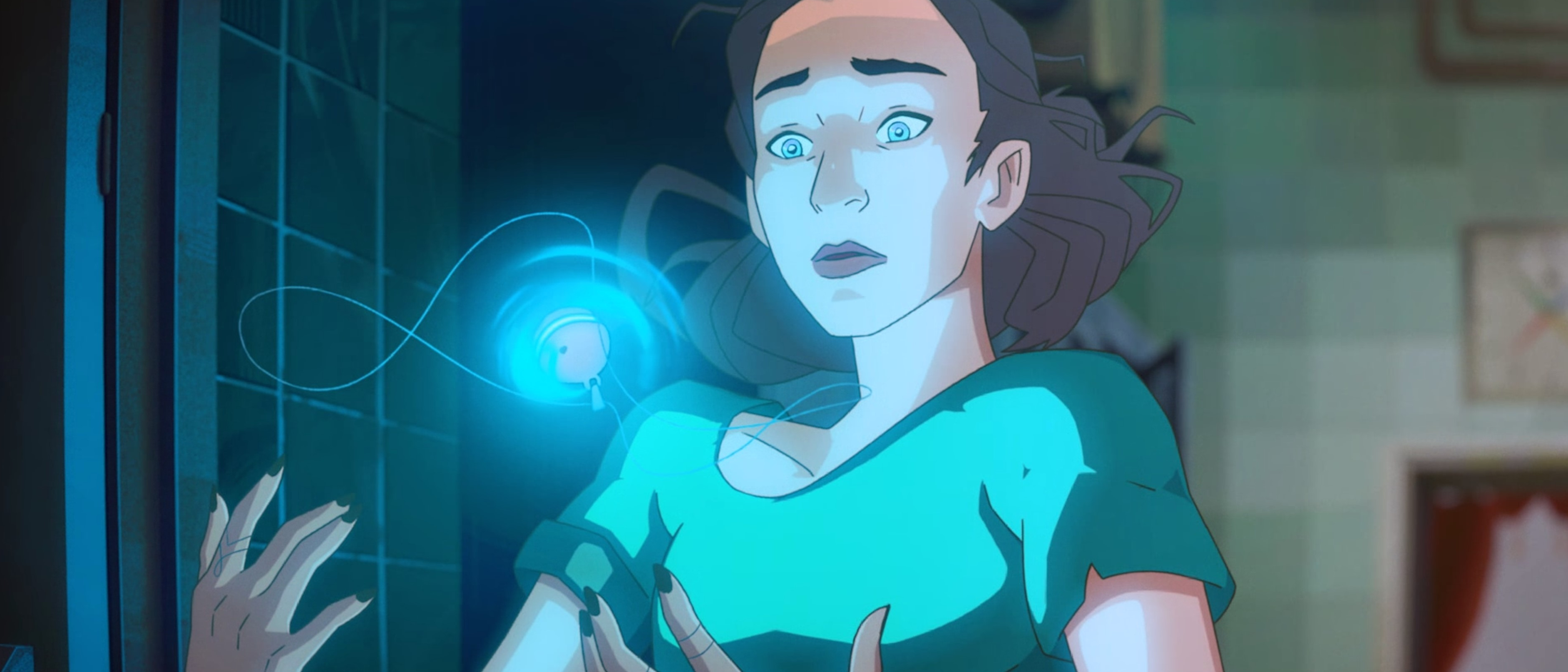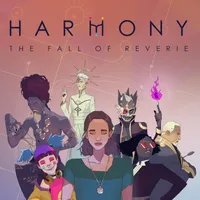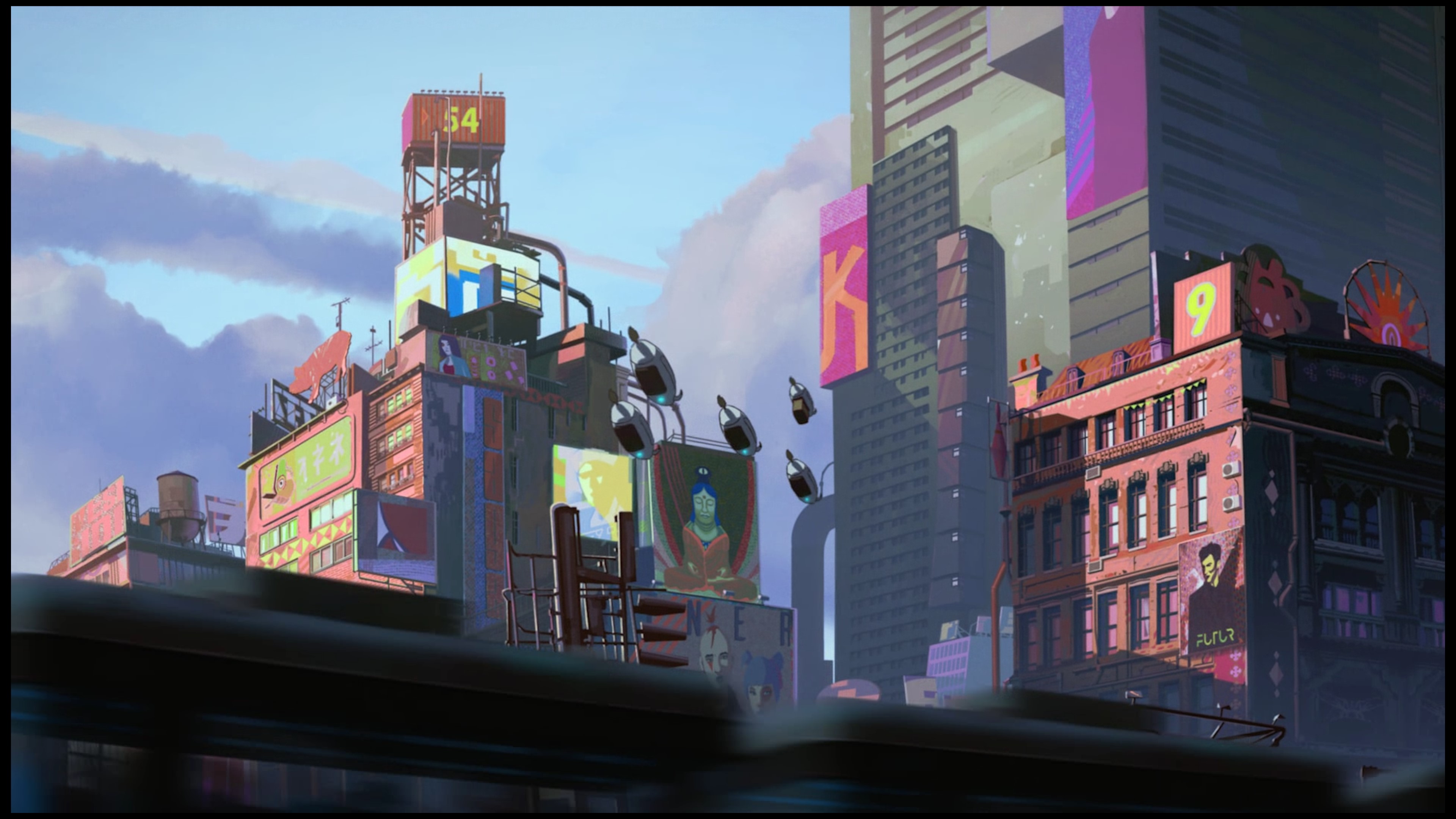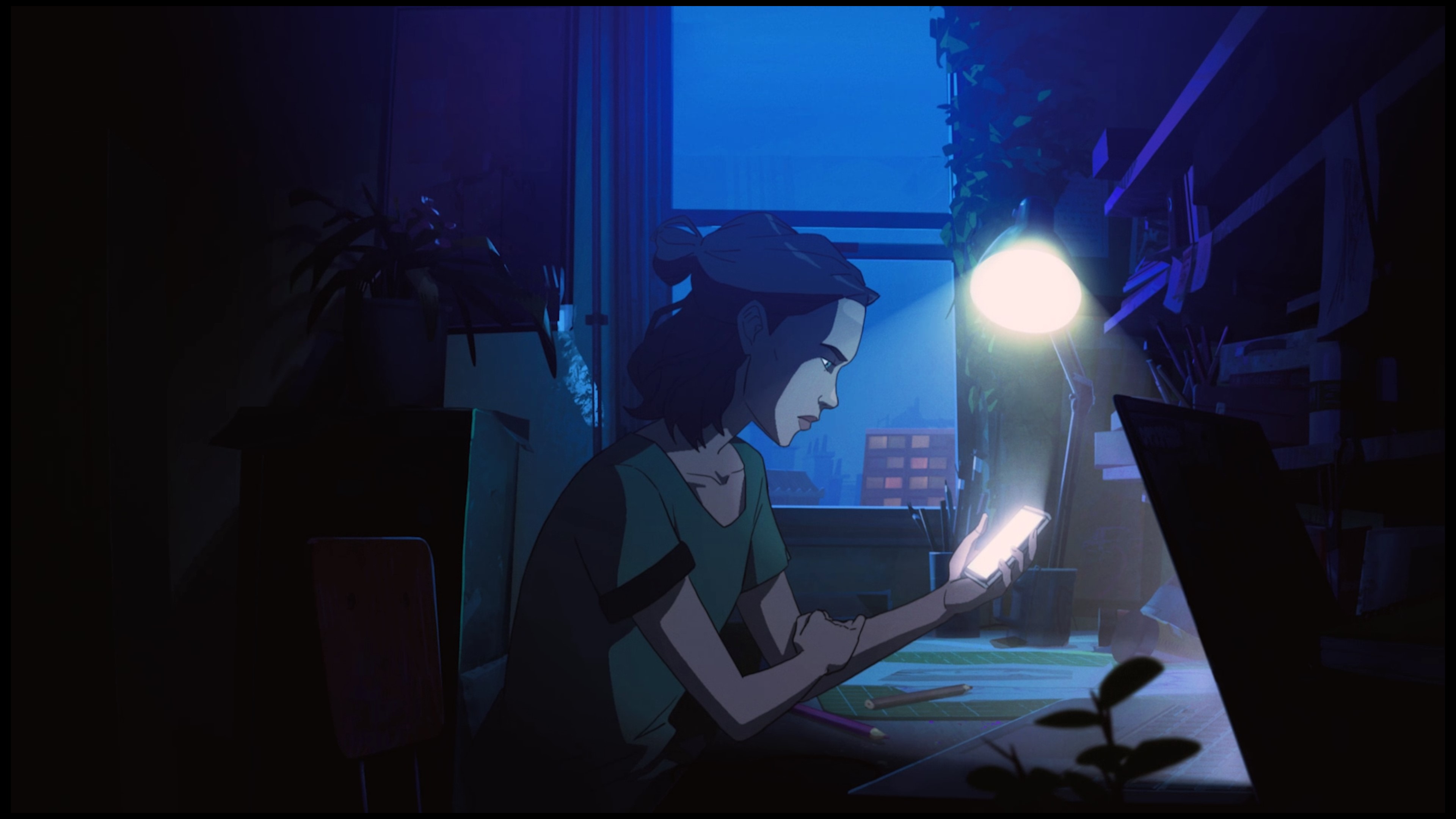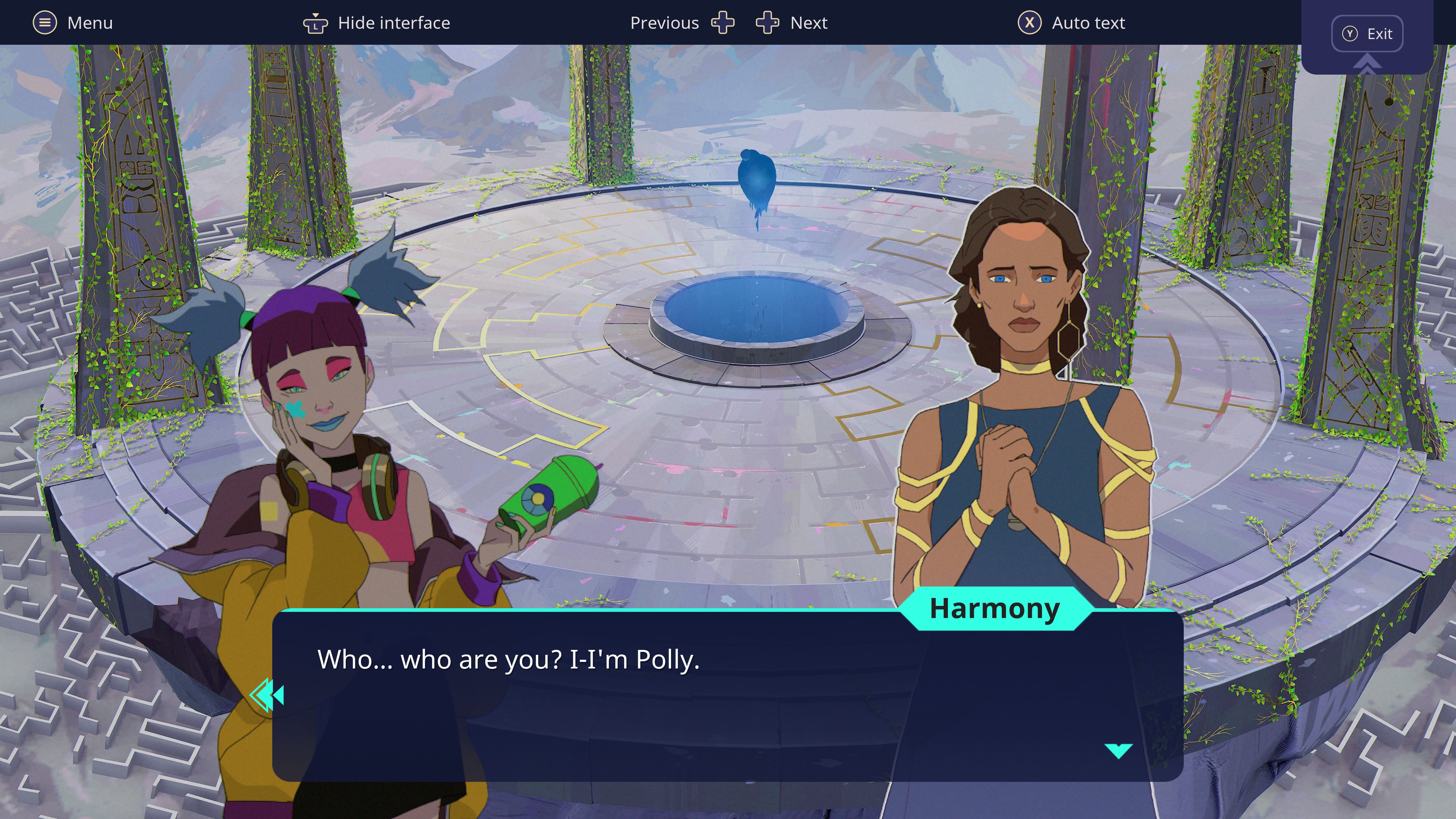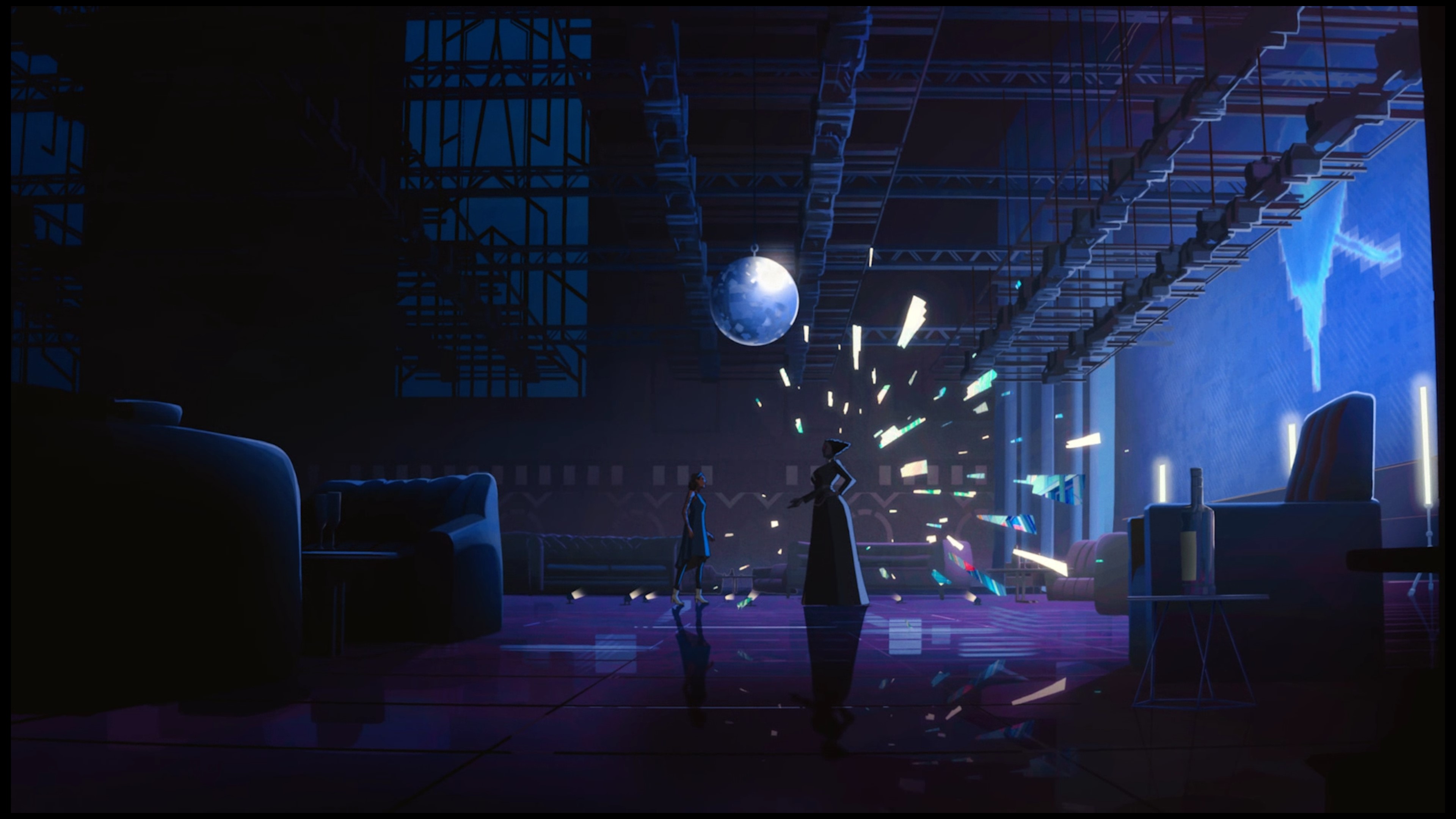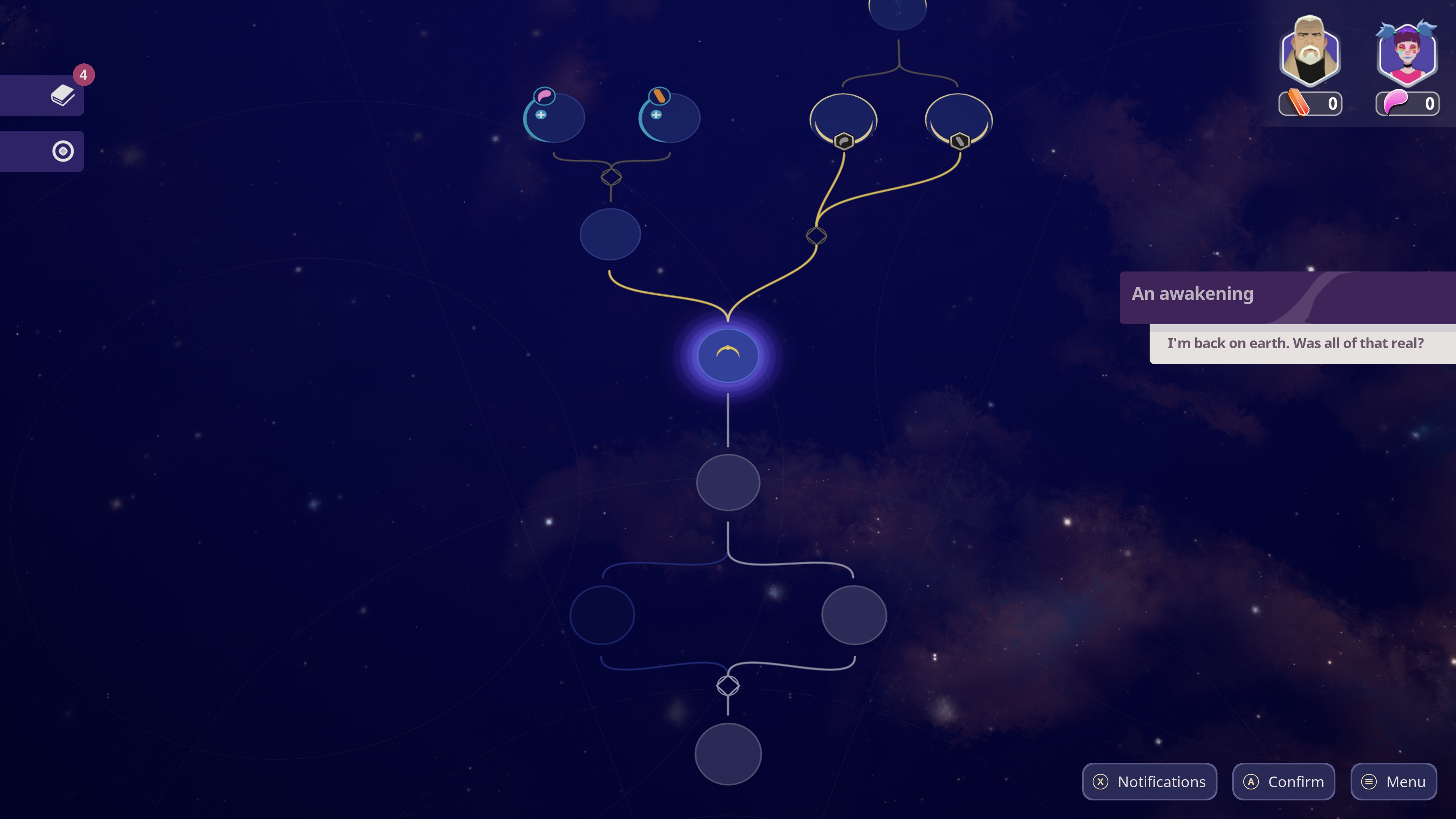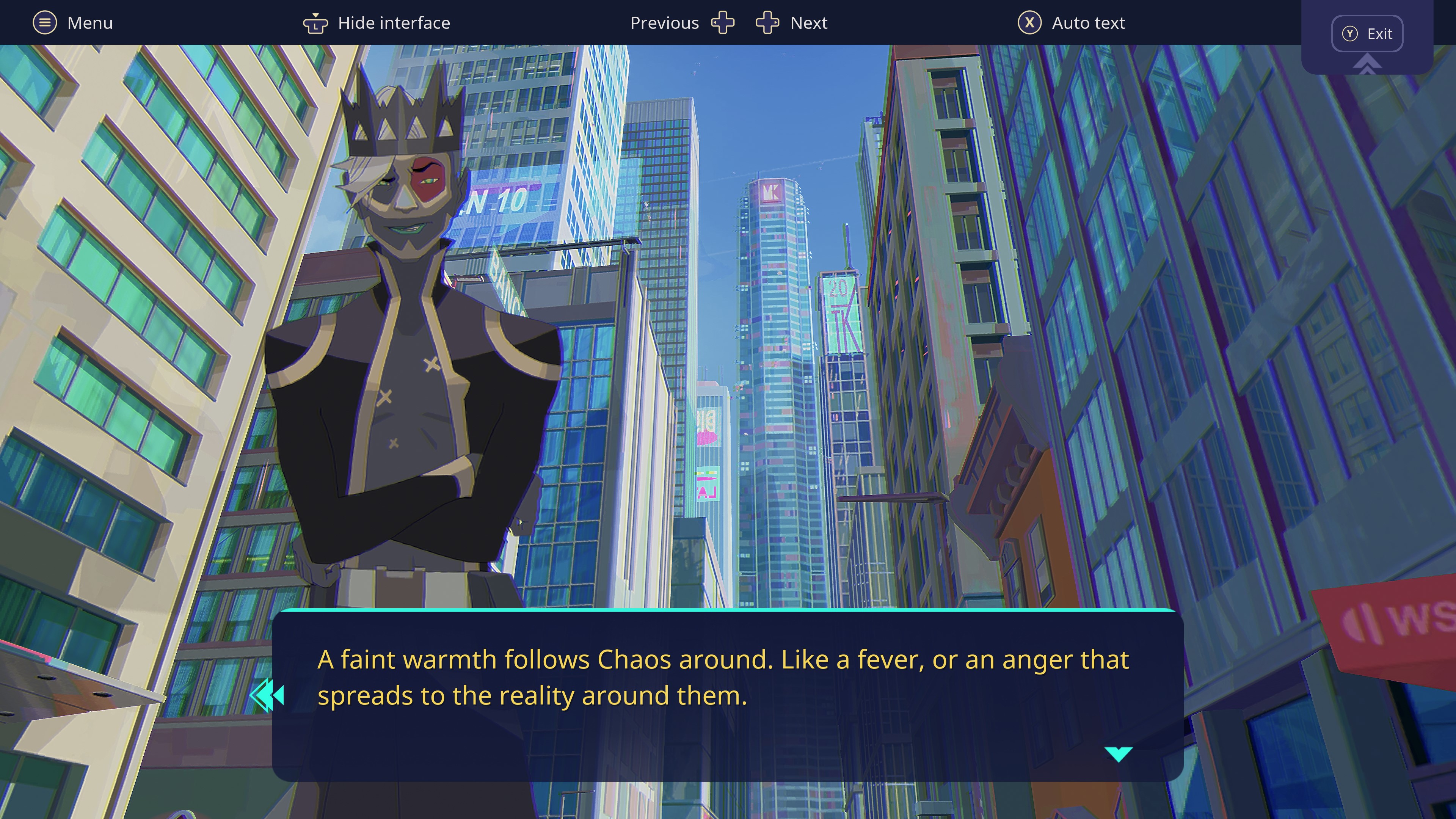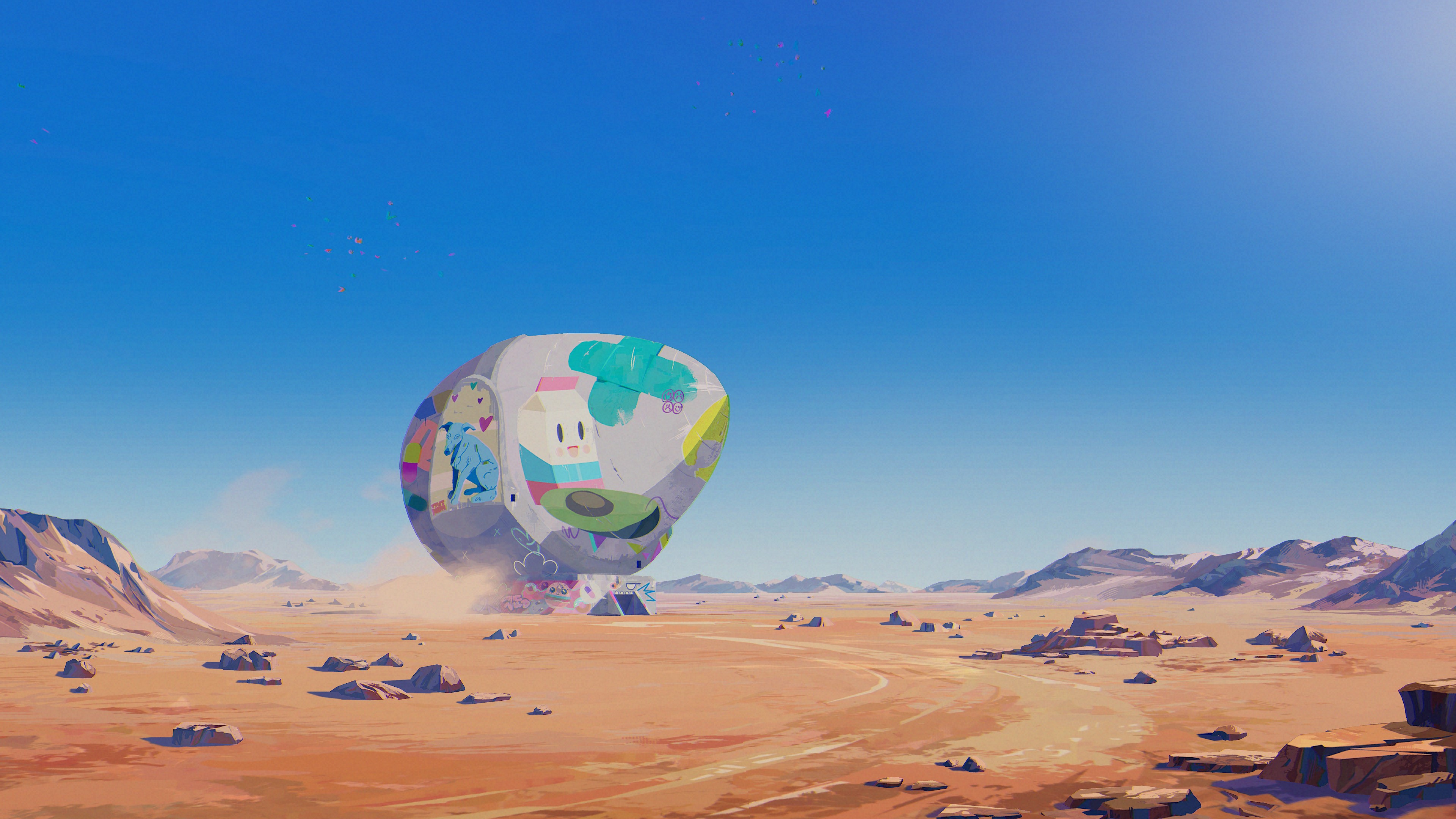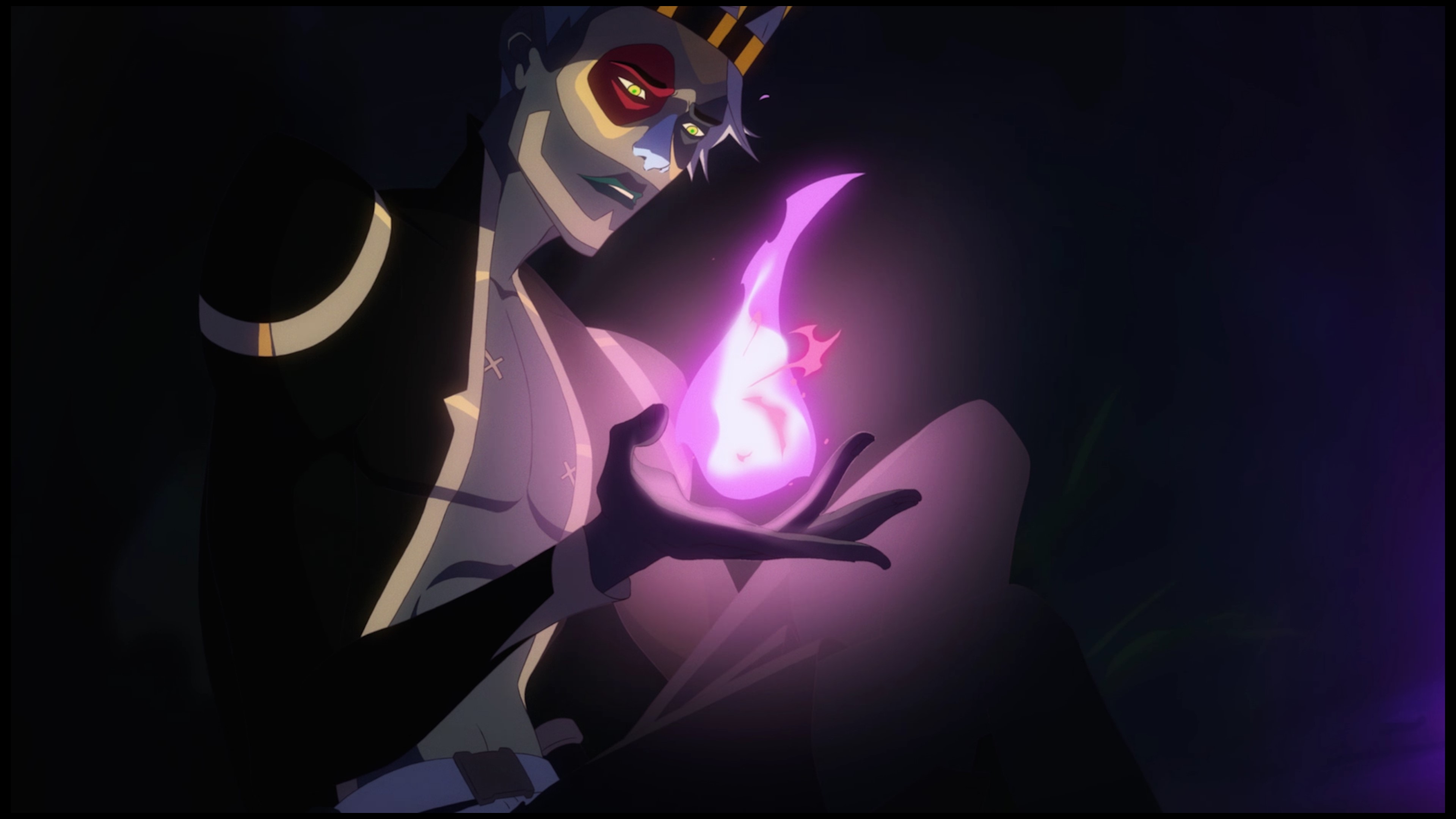Windows Central Verdict
Harmony: The Fall of Reverie immediately won me over with its beautiful art design, skillful writing, and high-quality voice acting. While the finished product doesn't quite reach the same level of magic, this is still an incredible choice-based, narrative game of hope, loss, love, and humanity.
Pros
- +
Gorgeous visuals, art design, and cinematics
- +
Believable, character-driven writing and world building
- +
Emotional multi-act narrative with meaningful choices
- +
Natural, nuanced, high-quality voice acting for every character
Cons
- -
Poor accessibility and localization
- -
Navigating and understanding the Augural can be difficult
- -
Some story moments, especially in the last act, fall flat
Why you can trust Windows Central
It's time to start a new video game. There are many ways this particular game may have caught your interest... Perhaps you saw one of its various trailers leading up to launch; maybe you heard about it from your favorite website or someone you know; it's possible you even happened upon it by chance during a sale or while scrolling through your gaming store of choice. Whatever led you to this game, it's time — You start it up, progressing past its initial screens. You check your settings and prepare yourself to experience an all-new world. You wait patiently, not knowing what to expect.
Within mere moments, a scattering of minutes, you get a feeling that starts in your stomach, creeping up into your chest — a heightening of expectation, a tensing of excitement. There's no way to know for certain, but you do; this video game is going to be immensely special. Are you familiar with the sensation? I've only experienced it a handful of times, with some of my most beloved games. Harmony: The Fall of Reverie gave me this feeling, and it almost carried that magic all the way through. Take a trip with me, and I'll tell you all about it.
Disclaimer: This review was made possible by a review code provided by DON'T NOD. The company did not see the contents of the review before publishing.
Harmony: The Fall of Reverie
DON'T NOD's latest narrative gem is incredible in so many ways, even let down by late-game narrative stumbles and poor accessibility. If you love games that put the story and characters front and center, Harmony: The Fall of Reverie is amazing.
Buy at: Microsoft (Xbox) | Steam (PC)
Harmony: The Fall of Reverie — Visuals and performance
Harmony: The Fall of Reverie begins with a wonderful, animated cinematic cutscene that looks pulled straight out of a beloved cartoon, establishing its main character Polly and the world. These cinematics cap each major act (of which there are five), but outside of that the game is more or less an interactive visual novel. Harmony: The Fall of Reverie's visuals are comprised of beautifully detailed background images to notate locations, as well as unique models and animations for every character.
Developer: DON'T NOD
Publisher: DON'T NOD
Genre: Interactive visual novel
Install size: 7.4GB
Playtime: ~12 hours
Release date: June 8, 2023 (Windows PC, Switch) / June 23, 2023 (Xbox, PlayStation)
Price: $24.99
Platforms: Xbox Series X|S, Windows PC, PS5, Switch
Reviewed on: Xbox Series X
There are no asset-packed 3D environments or an interactive open-world, as Harmony: The Fall of Reverie focuses entirely on building the world through its story and characters. It succeeds at that, too, but that doesn't mean the game isn't pretty to look at. Everything is lovingly, consistently designed and rendered, all contributing to the overwhelming feeling that this world could be real. There's not a stone out of place.
The stunning cinematic cutscenes bring the world into motion, and it's exactly what Harmony: The Fall of Reverie needed to avoid its simpler visuals from becoming boring or predictable. This is an amazing world, and I'd happily watch a full animated series set in it (and in this art style). The visuals are also supported by a gorgeous, original soundtrack composed by the ever-talented Lena Raine, best known for her work on Celeste, Minecraft, Guild Wars 2, and more. The music in Harmony: The Fall of Reverie is often subtle, but it's always impactful.
Harmony: The Fall of Reverie's simple visuals don't stop it from looking incredible.
As far as performance is concerned, Harmony: The Fall of Reverie played mostly flawlessly on my Xbox Series X. Any lag or stutters would be harder to notice in a visual novel-style game, but I never encountered any issues or bugs that detracted from my experience. My only complaint is that there are a lot of tiny loading screens in this game, and I mean a lot. These loading screens are always very brief (less than a second), but they add up when you see one before and after every node (checkpoints in a chapter), and even when one scene might move to a new location or change the background art.
All the latest news, reviews, and guides for Windows and Xbox diehards.
Harmony: The Fall of Reverie — Story and world
At first, Harmony: The Fall of Reverie introduces its story as being small and incredibly personal in scale. A woman returns home after many years away after learning that her estranged mother has disappeared. Now, she has to face her past, reuniting with old friends and families, and attempt to discover what happened to her mother. Along the way, though, the story rapidly expands to include the fate of the world... and more.
Harmony: The Fall of Reverie takes place mostly in the island city of Atina in the near future. Atina boasts advanced technology and infrastructure thanks to the influence of Mono Konzern, a massive megacorporation that can be found everywhere on the island. Polly has a complicated history with Atina and her mother, both, but now she has to come to terms with how much her childhood home has changed thanks to the machinations of MK.
Before she can do that, though, she's drawn to a mysterious necklace in her mother's old room, as if it's actually calling to her, and very suddenly discovers that the world is much, much larger than she thought. In a mere blink, she is transported to a surreal, fantastical realm known as Reverie, and she meets the first of several Aspirations. Enter: Bliss, the incarnation of humanity's joy, love, and childlike innocence.
Polly learns that she has been chosen as the Oracle, a bridge between her physical world (known as Brittle), and this ethereal plane occupied by the Aspirations. The Aspirations are not gods but are rather physical manifestations of human concepts. Each major turning point in humanity's evolution results in the birth of a new Aspiration, and these Aspirations in turn influence the path of humanity through dreams and emotions. In the modern age, the Aspirations include Chaos, Bliss, Power, Bond, Truth, and Glory.
Harmony: The Fall of Reverie is ultimately about being human, and it's a beautiful tale.
A new Oracle couldn't have come at a better time, Bliss reveals, because Reverie is in trouble. Only the Oracle and their direct influence in the physical world can possibly save Reverie from destruction, and it's somehow related to Polly's mother. Suddenly, Polly's quest becomes much larger than herself or her family, as the fate of Reverie is essentially the fate of Brittle (and vice versa); both realms heavily influence the other.
The resulting story is one of many choices and branching paths and is guided both by Polly (played by the player) and the many, many characters in Harmony: The Fall of Reverie's diverse and charismatic cast. Each character is fully realized and unique, and is backed by believable, emotional, and overall fantastic voice acting. As a story about humanity and the Aspirations formed from their dreams and desires, Harmony: The Fall of Reverie touches on almost every aspect of the human experience. There is love and loss, joy and desperation, anger and hurt, and a central theme of hope that humanity can move forward.
It's a beautifully written story supported by great worldbuilding and insanely loveable characters, drawing me into a tirade of emotions unlike any game I've played since Citizen Sleeper. Both games share the same rock-solid foundation, but Citizen Sleeper was a near-perfect execution on top of it. Harmony: The Fall of Reverie stands out thanks to its wonderful voice acting, but a few narrative stumbles keep it just shy of being a true masterpiece.
In order to maximize your choices and their effects, Harmony: The Fall of Reverie divides its story into five acts, each act into a few chapters, and each chapter into a lot of nodes (which are basically individual scenes). I only noticed one instance where two scenes didn't seamlessly lead into each other after making a choice (although there are likely other examples if you take different paths), but this game's biggest narrative weakness comes from brevity.
Harmony: The Fall of Reverie's final act isn't bad, but its flaws stand out when compared to the excellent previous acts.
There were multiple occasions, especially during periods of high conflict or stakes, where I felt Harmony: The Fall of Reverie just... slides past what should be a powerful or emotional moment. What deserves an entire scene is relegated to a line or two, leading you bereft of context or satisfaction. This is especially true in Act 5, the finale, although I won't spoil anything about the game. Suffice to say, Act 5 is chronologically the longest of all the acts, and I personally felt like major resolutions were just grazed rather than directly confronted, taking away from the power of the epic conclusion.
The game's ending hours aren't bad, by any means, but they fail to carry the same emotion and enrapturing magic as prior acts. Harmony: The Fall of Reverie depends almost entirely on its characters to drive home its story, but then relegates many of those characters to the background during its conclusion. I understand that it's always difficult to write a satisfying ending, let alone several, especially when you're talking about a longer choice-based game. Still, I was left a little unsatisfied by the final act of Harmony: The Fall of Reverie, as if I was brought to the top of an impossible high roller coaster, only to discover that the drop down was far shorter than I expected.
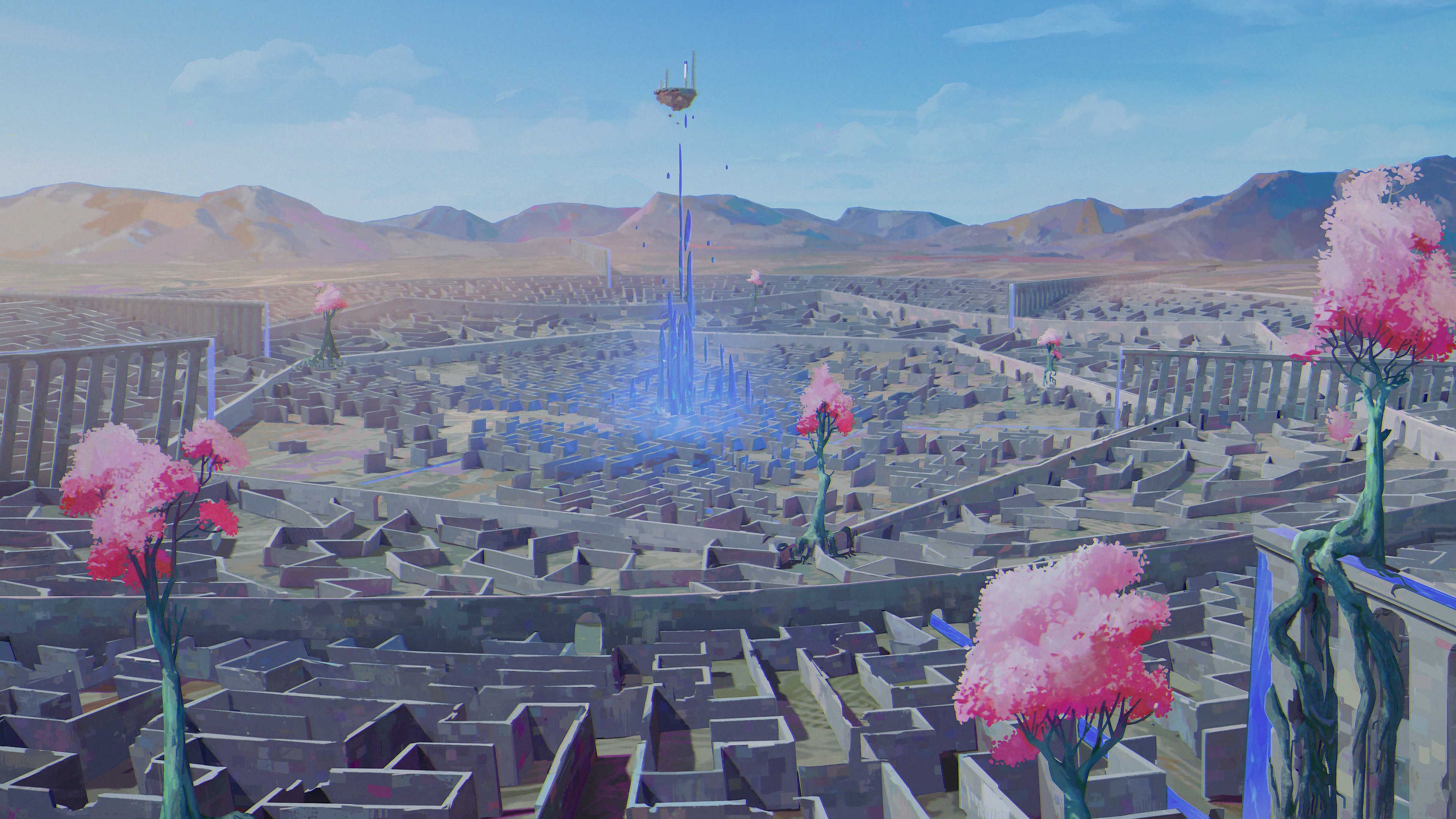
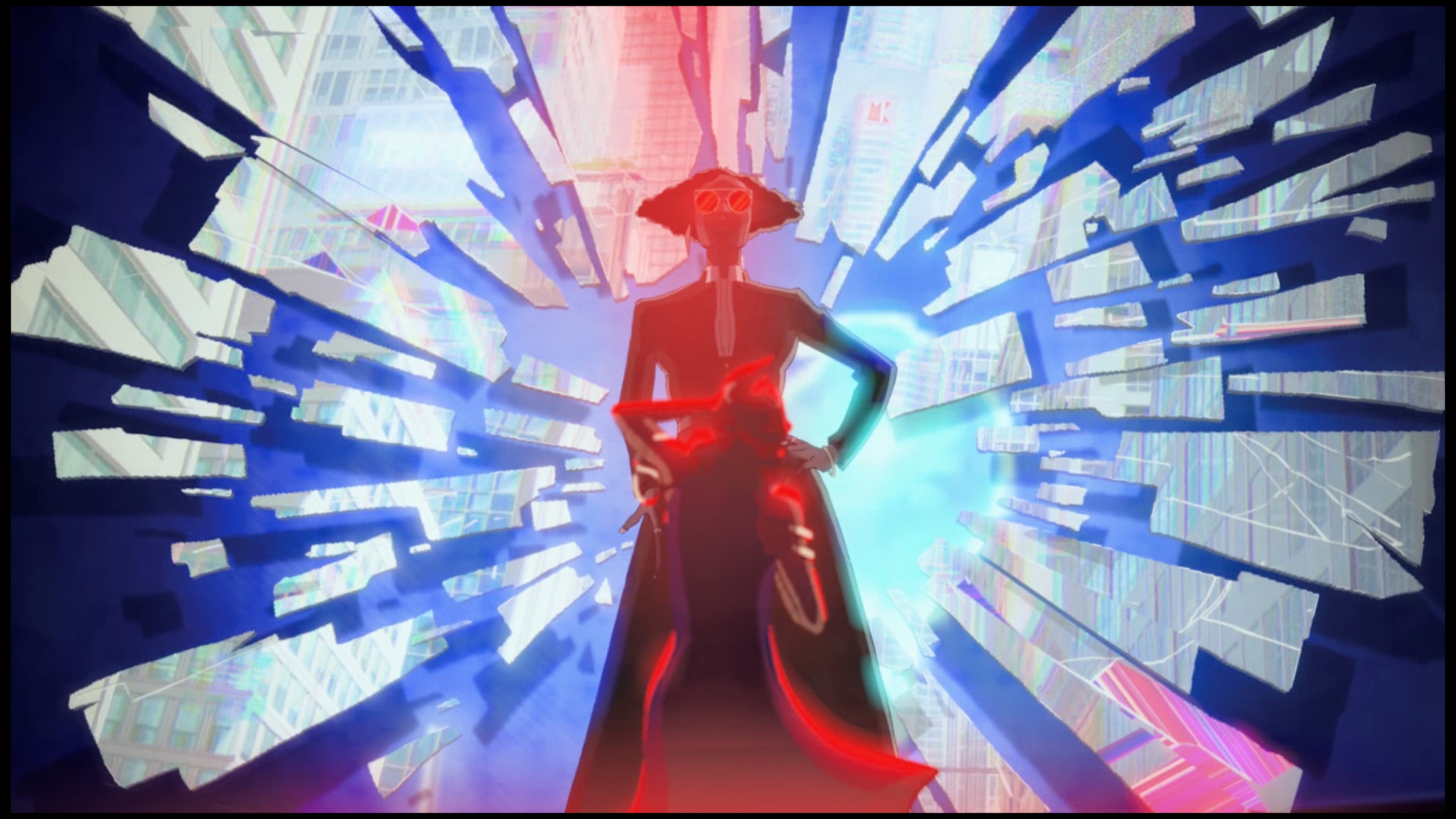
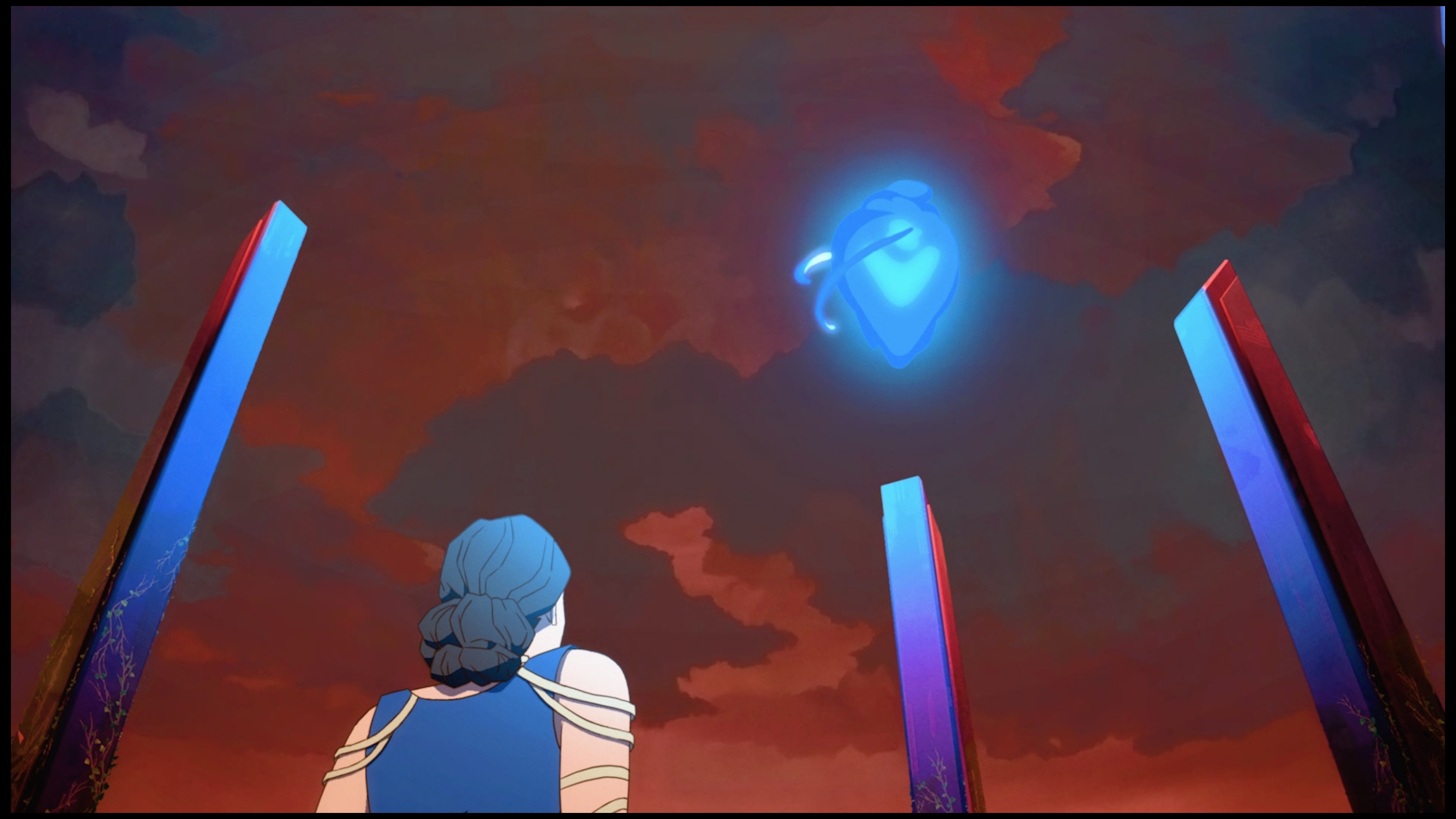
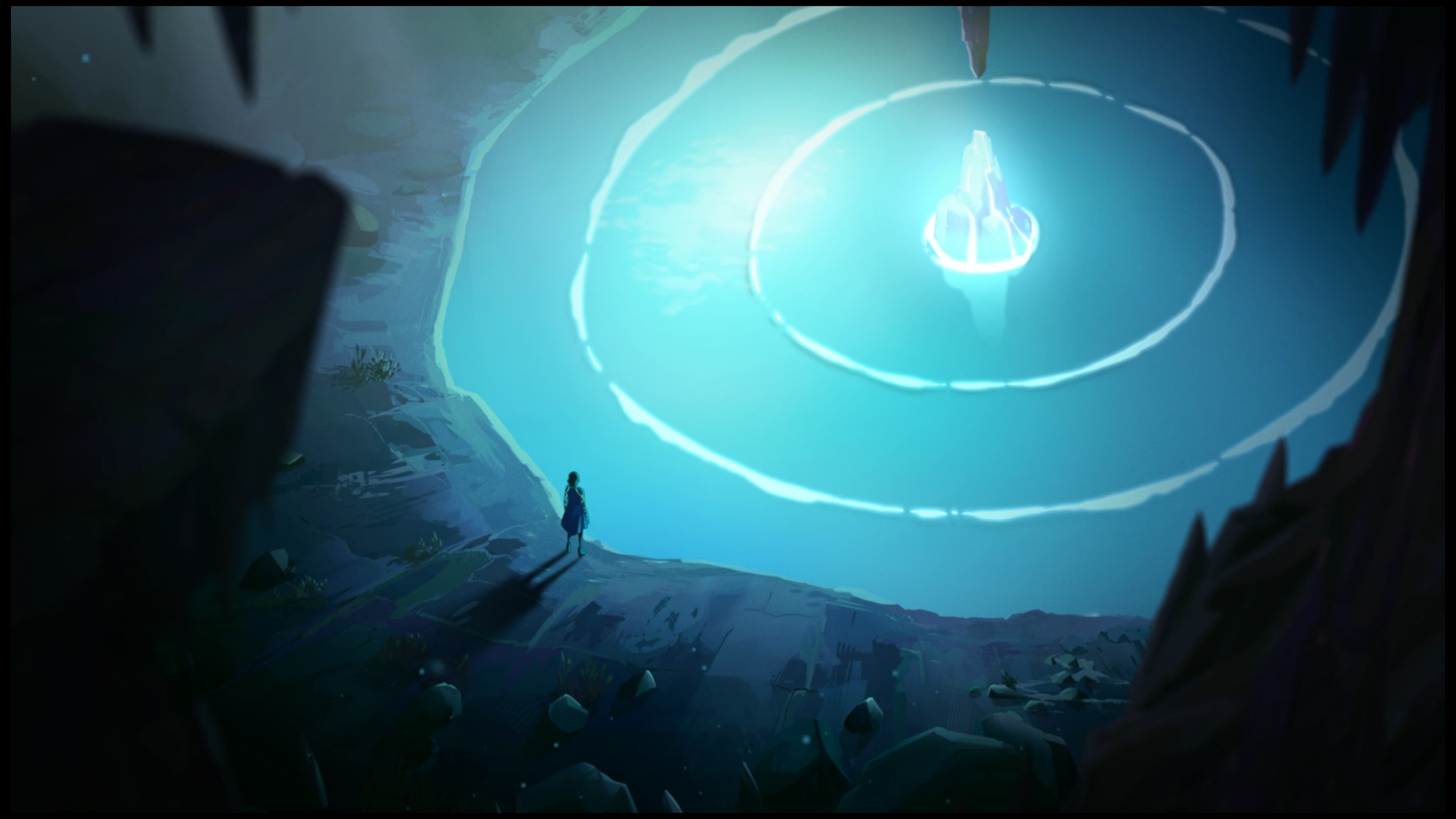
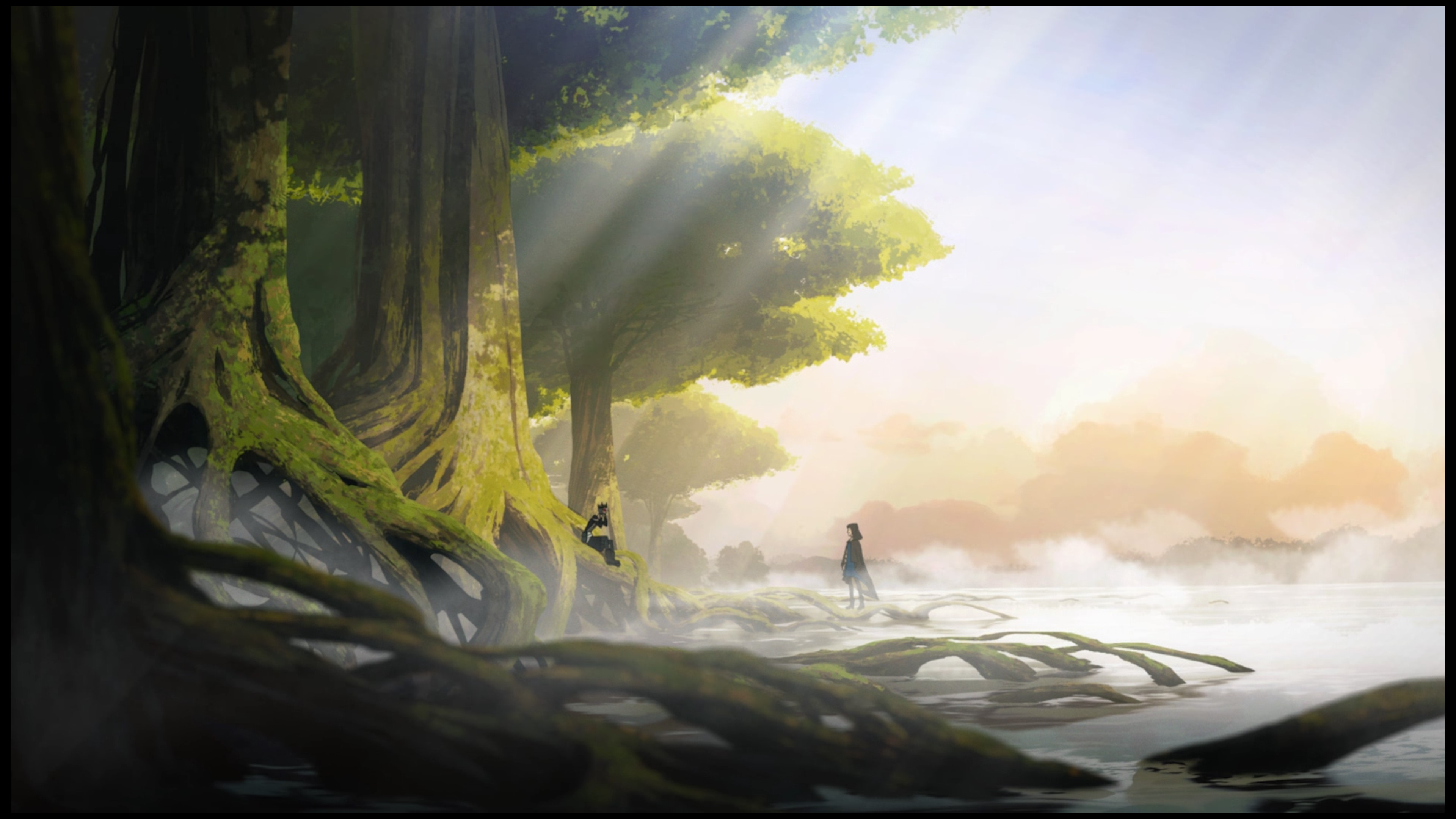
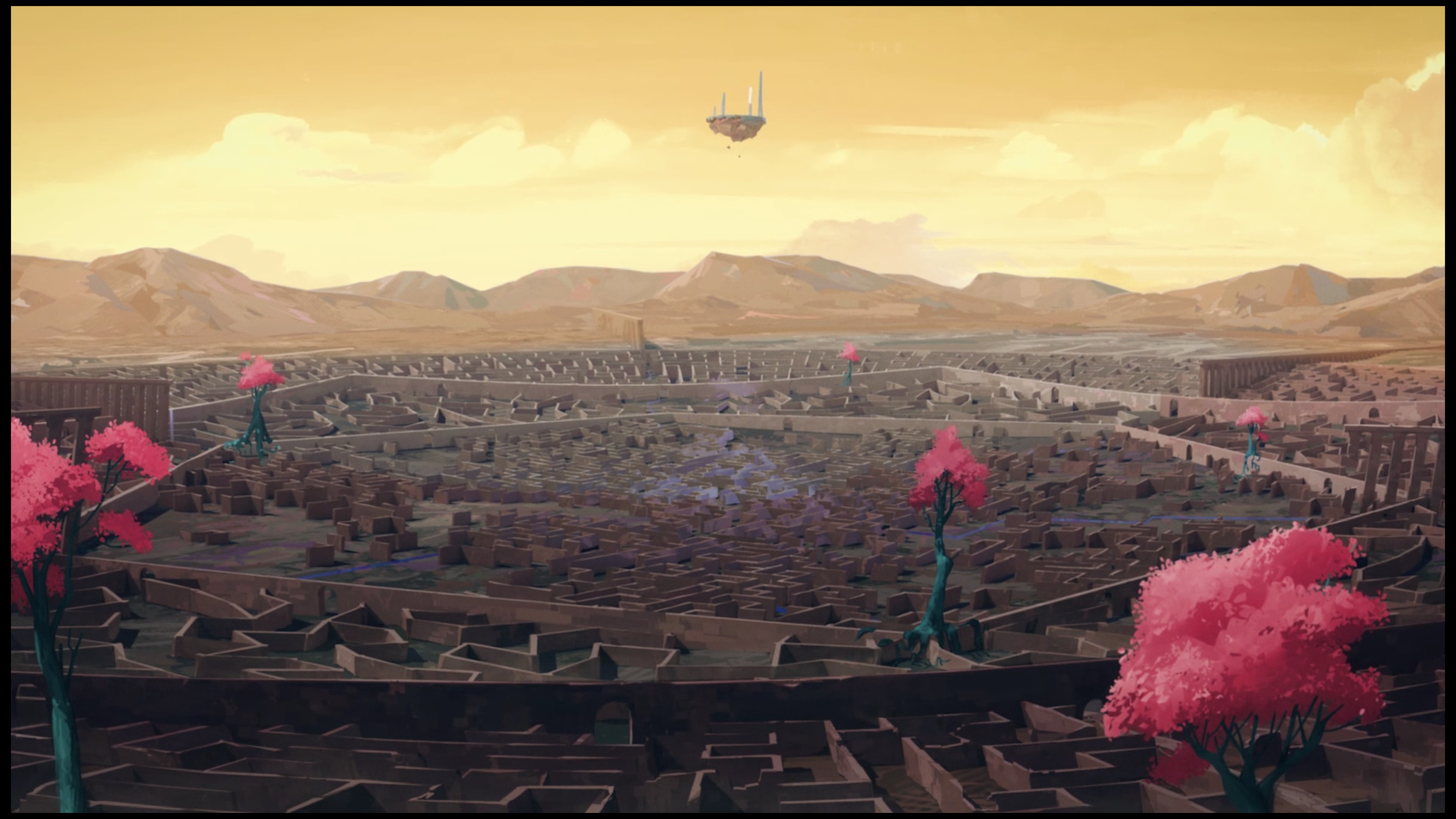
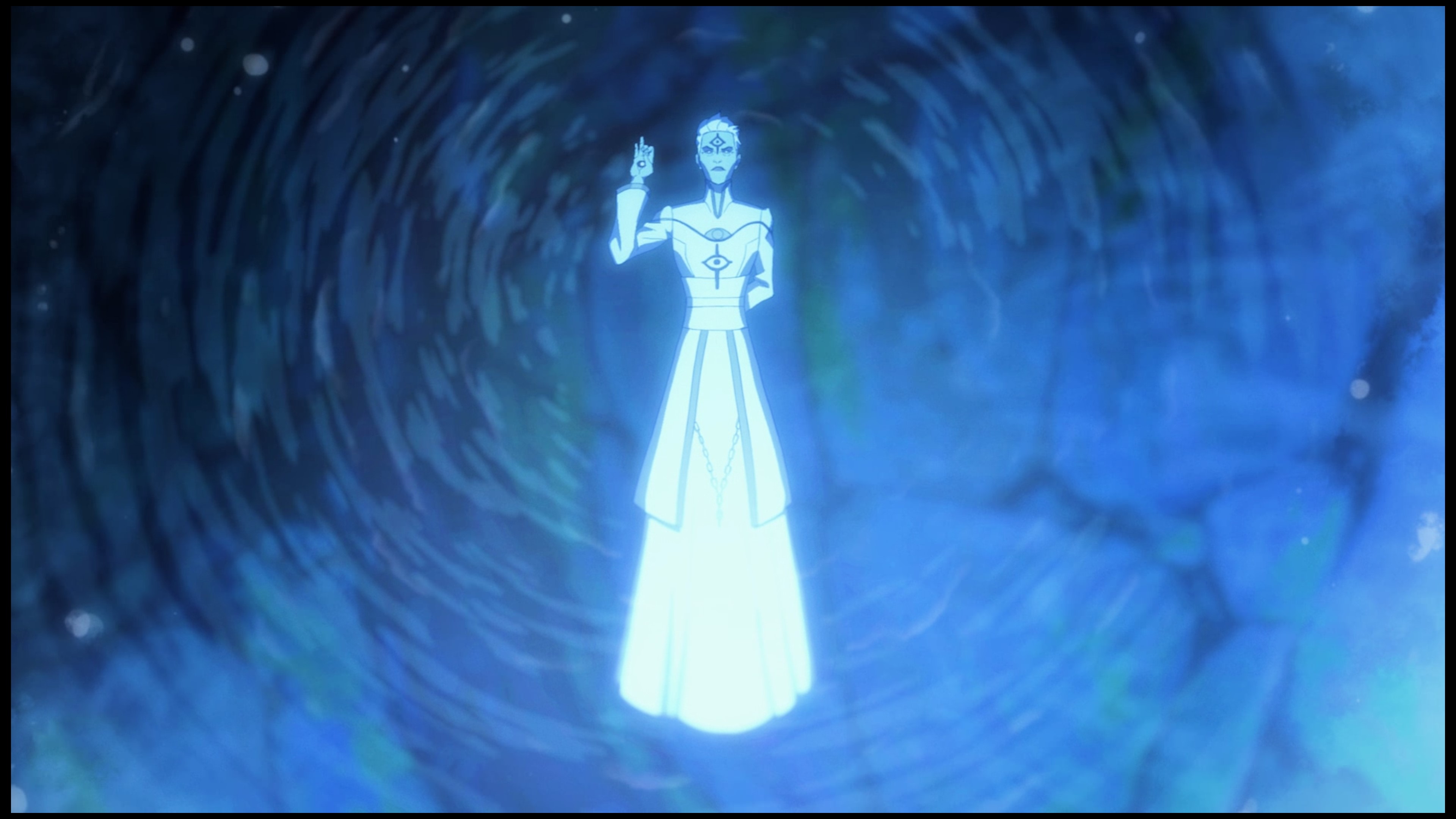
Harmony: The Fall of Reverie — Gameplay
Early on in the game Harmony: The Fall of Reverie introduces the mechanic that will make up the core of its gameplay. Up until then you are simply following the story without interfering, carried along as fate wills it. Once Polly has been chosen as the Oracle, though, she enjoys a noble power through her connection to Reverie: The Augural. This mysterious force allows Polly to peer into the future and see possible paths, changing the course of history through her decisions. Now, that power is in your hands, as every choice is up to you.
Polly will use the Augural to help her find her mother, uncover the truth behind what's happening in Reverie, and try to save her home from destroying itself from within. Harmony: The Fall of Reverie is a narrative game in the style of a visual novel, but you are behind every choice. There are many branching paths, and it can heavily influence the events of the story all the way to the end. You have to choose what kind of Oracle and person you want to be, and ultimately decide which of Reverie's Aspirations should be chosen to guide humanity's future.
You're not just making choices on a whim, you're actively guiding the world to a future of your choosing.
I actually love this approach to decision-making, as it makes contemplating different paths an integral part of the gameplay. You're not just given a few options, you can also see where those options may lead, get hints on outcomes, and try and plan the future you want to see happen. It requires plenty of forethought at time, especially when you're aiming for a specific ending or trying to remain true to the Polly you want to be. My Polly, for example, was empathetic, honest, and totally unafraid to take care of herself when she needed it rather than sacrifice everything for the people around her.
So many outcomes and different paths inevitably means replaying some parts if you're unsatisfied with the conclusion. Unfortunately, you're limited in how you can do that. You're only able to restart chapters that you're currently playing, and there's no way to quickly skip scenes you've already seen, leaving you to mash buttons to progress through the text. Finally, there's no way to go back and replay specific acts or chapters after you've completed the game, and I feel there should be.
The Augural itself is imperfect, too. While it's laid out relatively clearly, it can be an utter pain to navigate it on a controller, mostly when you're trying to look at a specific node in a group. This is one game where I feel an on-screen cursor would actually be helpful rather than detrimental. The Augural also has a ton of UI and UX elements to let you know when nodes are locked, need to have conditions met, influence other nodes or future paths, and more. Most of this is intuitive, but there's a lot here and there isn't a persistent legend to help remind you what the various icons and symbols mean.
The Augural is the interactive element of Harmony: The Fall of Reverie, so any imperfections in its use is immediately noticeable. This game is also very replayable thanks to the branching paths and outcomes (you will never be able to do everything you want in one playthrough), so it's a shame that DON'T NOD isn't making it easier for players to see parts of the game they may have missed in their first playthrough.
Harmony: The Fall of Reverie — Accessibility
Harmony: The Fall of Reverie is a relatively straightforward, easy-to-play game, with its simple visual novel-esque game design lending itself to great approachability. Still, going even further to ensure as many people as possible can play your game is vital, so what did DON'T NOD do to make Harmony: The Fall of Reverie more accessible and approachable?
Unfortunately, accessibility settings are limited here, further offset by some difficult game design elements and a general lack of localization. You have granular sliders for audio, and exactly three toggles for Autoplay (plus Autoplay speed), displaying controls, and showing tutorials. There are no ways to customize the text size or contrast to improve visibility, no color-blind options, no way to rebind the (admittedly simple) controls.
Harmony: The Fall of Reverie unfortunately lacks in accessibility and localization departments.
Like I mentioned before, the design of the Augural can make it difficult to navigate, while the lack of a legend can make it difficult to understand. The Augural is the core of Harmony: The Fall of Reverie, but some players may find it frustrating to use. There's also no way to skip sections you've already seen when replaying nodes or chapters, and you can only restart chapters that you're currently in — there's no way to restart acts or go back to earlier acts.
Finally, localization is sorely lacking in Harmony: The Fall of Reverie. Full localization is only available in English, and there's partial localization (subtitles and interface) for three additional languages: German, Spanish (Spain), and French. Right away, this is going to make this game inaccessible to a lot of players, and that's really unfortunate. Localization is difficult, but important. Harmony: The Fall of Reverie is a special game that as many players as possible should experience, but accessibility and localization both miss the standard for a modern video game.
Harmony: The Fall of Reverie — Should you play it?
You should play this if ...
- You love a good story with endearing characters and great writing
- You enjoy choice-based games with a lot of options
- You don't need your games to have more involved gameplay
You should not play this if ...
- You need more active, engaged gameplay
- You need missing accessibility or localization options
I spent 12 hours in Brittle and Reverie, as I listened to all the voice acting and replayed a few chapters. Within the first ten minutes of playing, though, I found myself flooded with a sensation of excitement and anticipation; I caught myself thinking "This game might be a masterpiece." DON'T NOD almost carried that sensation through all five acts, but a gently disappointing finale and weaknesses in both the gameplay and game design subdued that feeling before I reached the credits.
Harmony: The Fall of Reverie is a very good game. I can see how much love and passion was poured into creating this world, bringing these characters to life, and crafting an ocean-like story flooded with emotion, dreams, and possible futures. It remains one of my favorite Xbox games of 2023, and I cannot recommend it enough to fans of narrative-heavy, choice-based games. It falls shy of perfection, but that doesn't make me any less grateful that I decided to give it a chance and play it.
Harmony: The Fall of Reverie
DON'T NOD's latest narrative gem is incredible in so many ways, even let down by late-game narrative stumbles and poor accessibility. If you love games that put the story and characters front and center, Harmony: The Fall of Reverie is amazing.
Buy at: Microsoft (Xbox) | Steam (PC)

Zachary Boddy (They / Them) is a Staff Writer for Windows Central, primarily focused on covering the latest news in tech and gaming, the best Xbox and PC games, and the most interesting Windows and Xbox hardware. They have been gaming and writing for most of their life starting with the original Xbox, and started out as a freelancer for Windows Central and its sister sites in 2019. Now a full-fledged Staff Writer, Zachary has expanded from only writing about all things Minecraft to covering practically everything on which Windows Central is an expert, especially when it comes to Microsoft.
